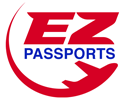How the Jetblue, Spirit Consolidation Will Affect Fliers
The arrangement with Spirit will keep JetBlue positively situated as the fifth biggest U.S. carrier.

Spirit Airlines and JetBlue Airways announced that they have agreed to a merger Thursday, less than a day after Spirit terminated its proposed merger with budget airline Frontier.
Driving the news: JetBlue said in a news release that it will pay $33.50 a share in cash for Spirit in a $3.8 billion deal, which was higher than Frontier's $2.6 billion offer in cash and stock.
- Spirit had said Wednesday it planned to hold discussions with JetBlue about a possible deal, Axios' Nathan Bomey reports.
- Spirit announced the Frontier deal's collapse after the company's shareholders were poised to vote on it.
Why it matters: The deal, which still needs regulatory approvals and approval from Spirit stockholders, would create the nation's fifth largest airline.
- The companies expect to conclude the regulatory process and close the transaction no later than the first half of 2024.
JetBlue and Spirit merger

Details: The combined airline with a fleet of 458 aircraft will be based in New York but would have a "significant presence in Florida," according to a fact sheet on a new merger website.
- JetBlue said the acquisition would accelerate its growth plan with 1,700-plus daily flights to more than 125 destinations in 30 countries based on December 2022 schedules.
- The acquisition will increase relevance for JetBlue in certain key focus cities (Fort Lauderdale, Orlando, San Juan, and Los Angeles) as well as Big Four airline hubs (Las Vegas, Dallas, Houston, Chicago, Detroit, Atlanta, and Miami), the company said.
- The airlines will continue to operate independently until after the transaction closes.
JetBlue said if the deal doesn't close due to antitrust reasons, it will pay Spirit a reverse break-up fee of $70 million and Spirit stockholders a "reverse $400 million less any amounts paid to stockholders of Spirit before termination."
What they're saying: JetBlue CEO Robin Hayes said in a statement that the two airlines will work to "continue to advance our shared goal of disrupting the industry to bring down fares from the Big Four airlines."
- "By enabling JetBlue to grow faster, we can go head-to-head with the legacies in more places to lower fares and improve service for everyone," Hayes said, noting that combined the airlines would "still be significantly smaller than the Big Four."
- Spirit president and CEO Ted Christie said the merger will be a "game changer" and would "create the most compelling national low-fare challenger to the dominant U.S. carriers."
JETBLUE WILL NOT BACK DOWN, CONTINUES ITS FIGHT FOR SPIRIT AIRLINES

The deal with JetBlue – which operates like the four giants that dominate the U.S. airline business – will likely eliminate industry price disrupter Spirit from the marketplace — ultimately driving prices higher across the board for consumers, he added.
Comparatively, if Spirit shareholders chose Frontier, another discount carrier with a similar operating model, it would have created more competition against rivals and potentially simulated price downward, according to Corridore.
served as the center of Maltese nobility.
SPIRIT, FRONTIER AND JETBLUE: PROS AND CONS

Overall, the fare environment – which has already been rising due to supply-demand imbalance and rising input costs – may become a little more difficult for travelers. However, most airlines will still only charge as much as the market will allow, Corridore added.
Corridore also doesn't expect regulators to block the deal either because of the number of remaining competitors and the small market share of the combined airlines.
"We will have to see how harshly regulators look over the merger and if they try to block it or make JetBlue sell routes," he said. "Overall, we don't think the level of market share is enough to have the deal blocked."
When combined, JetBlue and Spirit would only have a 12% market share as measured by Similarweb data on web traffic. The New York-based airline still lags behind Southwest, American, Delta and United, all of which have a higher share of web traffic, Corridore said.
Meanwhile, JetBlue CEO Robin Hayes said the deal allows JetBlue to bring low fares and exceptional service to even more customers on more routes.
"Spirit and JetBlue will continue to advance our shared goal of disrupting the industry to bring down fares from the Big Four airlines," Hayes said.
Likewise, Spirit CEO Ted Christie called the deal a "game changer" and said the airlines have agreed to "create the most compelling national low-fare challenger to the dominant U.S. carriers."
Christie said the company is confident in JetBlue to deliver "low fares and award-winning service."


